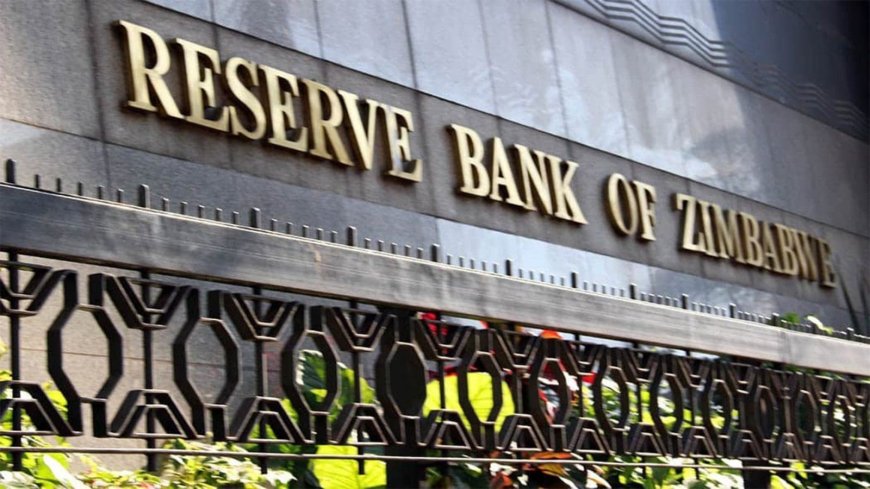The State of the Fintech Sector in Zimbabwe: A Five-Year Review

The fintech sector in Zimbabwe has evolved significantly over the past five years. Amid economic volatility, the rise of mobile money, and a regulatory landscape that has struggled to keep pace with innovation, fintech in Zimbabwe has had its highs and lows. However, despite challenges, the sector has shown resilience, with many fintech startups becoming crucial players in financial inclusion and the broader economy. This blog post explores the progress, challenges, and future of fintech in Zimbabwe, offering a comprehensive review of how it has fared over the past half-decade.
1. The Rise of Mobile Money: A Game Changer
One of the most notable trends in Zimbabwe’s fintech sector over the last five years has been the explosion of mobile money. With many people in the country having limited access to traditional banking services, mobile money has bridged a significant gap in financial inclusion.
In particular, EcoCash, Zimbabwe’s leading mobile money platform (launched in 2011 by Econet Wireless), has expanded its services and solidified its dominance in the market. EcoCash, which allows users to make payments, transfer money, and access loans, has made remarkable strides over the past five years. According to reports, by 2020, EcoCash had surpassed 6 million active users, a huge leap from the 4 million users in 2015.
The rapid adoption of EcoCash is indicative of the wider mobile money revolution in Zimbabwe. Mobile money provides an affordable, secure, and convenient way for individuals to transact, especially in a country where traditional banking infrastructure is often limited or unreliable.
In addition to EcoCash, OneMoney (launched by OneFusion, a subsidiary of NetOne) and Telecash (a platform operated by Telecel) have also gained traction, further deepening mobile money penetration. These services are not just limited to money transfers; they offer a suite of services such as airtime top-ups, bill payments, and even access to insurance products, loans, and savings accounts.
2. Digital Banking and Neobanks: A Growing Trend
While mobile money has been a revolutionary force, digital banking and neobanks are also emerging as key players in Zimbabwe's fintech space. These digital platforms offer banking services without requiring physical branches, providing another layer of accessibility for people in remote or underserved areas.
FBC Bank and CBZ Bank, two of Zimbabwe's largest financial institutions, have introduced mobile banking apps and digital payment solutions to cater to a growing tech-savvy population. These institutions are increasingly adopting advanced technologies such as Artificial Intelligence (AI) and machine learning to improve customer service, risk assessment, and fraud prevention.
Stanchart and Standard Chartered have also played their part by enhancing their mobile banking platforms and expanding digital services, even though they face the challenge of adapting to the fluctuating Zimbabwean economy. The general trend has been the shift from traditional brick-and-mortar banking to digital-first strategies, catering to the needs of Zimbabwe’s increasingly mobile and internet-connected population.
3. Fintech Startups: Innovation Amidst Challenges
Zimbabwe’s fintech startup ecosystem has witnessed growth despite facing major hurdles such as inflation, economic instability, and a volatile currency. However, the growth of startups in areas like payments, lending, and insurance has been notable.
PayNow: Revolutionizing Payment Solutions
One of the standout fintech startups in Zimbabwe has been PayNow, a payment gateway that enables Zimbabweans to pay for goods and services using both local and foreign currencies. Over the past five years, PayNow has gained significant traction with its ability to integrate mobile money platforms, bank accounts, and card payments in a unified system. This has been especially important in a country where cash shortages are frequent and people rely on mobile payments for everyday transactions.
ZB Bank's ZB Kiosk and Lending Solutions
ZB Bank, a major player in the Zimbabwean banking sector, has partnered with fintech startups to offer a range of digital products. The bank's collaboration with ZB Kiosk has made it easier for people to access financial services at self-service kiosks across the country. In addition to this, ZB Lending has also seen strong demand, offering microloans and credit facilities to individuals and small businesses looking for alternative sources of funding.
These startups and partnerships have helped democratize financial services and reduced the dependency on cash-based transactions, which were once dominant in Zimbabwe.
4. Regulatory Hurdles and Policy Challenges
Despite the progress, Zimbabwe’s fintech ecosystem has faced significant regulatory challenges over the years. The government’s approach to fintech regulation has often been reactive rather than proactive, leading to periods of uncertainty in the market.
In 2018, the Reserve Bank of Zimbabwe (RBZ) introduced strict regulations to curb money laundering and speculation, which included limits on mobile money transactions. The move created a wave of uncertainty in the fintech community, but also prompted fintech startups to innovate in response to regulatory restrictions.
Additionally, the fluctuating value of the Zimbabwean dollar and high inflation rates have made it difficult for fintech companies to operate sustainably. Many fintech platforms have had to adjust their pricing models to cope with hyperinflation and changes in exchange rates.
Despite these challenges, fintechs have demonstrated agility and resilience. The rise of cryptocurrencies has also provided an alternative avenue for investment, despite regulatory concerns, especially as Zimbabweans look for ways to preserve their wealth in times of economic instability.
5. The Future of Fintech in Zimbabwe: What Lies Ahead?
Looking ahead, the future of fintech in Zimbabwe looks promising, albeit with challenges. As technology continues to evolve, the demand for digital financial services is expected to grow, especially with the increasing number of young, tech-savvy individuals entering the workforce.
The key areas of growth for Zimbabwean fintechs over the next five years are likely to include:
-
Cross-Border Payments: With Zimbabwe’s heavy reliance on remittances, fintechs are expected to tap into the cross-border payments market, making it easier for Zimbabweans in the diaspora to send money home.
-
Blockchain and Cryptocurrencies: The government has shown interest in exploring blockchain technology, which could improve transparency, reduce fraud, and simplify transactions. Despite challenges with regulation, cryptocurrencies like Bitcoin and Ethereum could play a significant role in the country's financial future.
-
Financial Inclusion: With a large portion of the population still unbanked, there is significant room for fintech startups to offer products aimed at financial inclusion, such as microloans, savings accounts, and insurance services for the informal sector.
-
Regulatory Clarity: If the government takes a more proactive and forward-thinking approach to regulation, fintech startups will have a clearer path to growth and development. Predictable and transparent regulations will foster greater investment and innovation in the sector.
Conclusion
The fintech sector in Zimbabwe has come a long way over the past five years. From mobile money’s explosive growth to the emergence of digital banking and fintech startups, the sector has shown that it can thrive even amidst economic challenges. While regulatory uncertainty remains a concern, the outlook for the fintech space in Zimbabwe is positive, with opportunities for growth and innovation in financial inclusion, cross-border payments, and blockchain technologies.
Ultimately, fintech has the potential to reshape Zimbabwe's financial landscape, and it will be exciting to watch how it evolves over the next five years.

 Francis
Francis 





